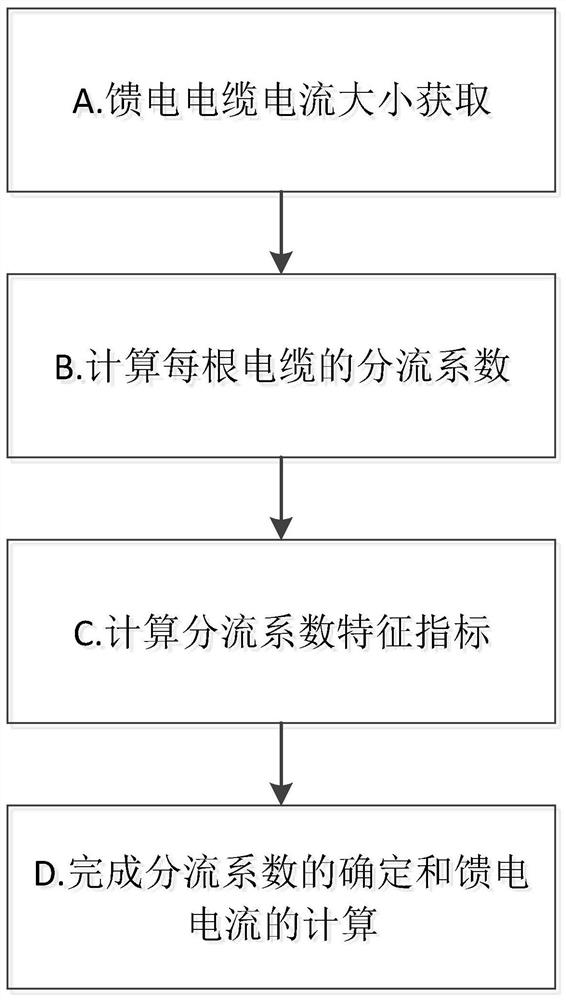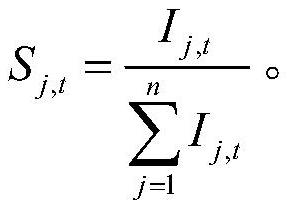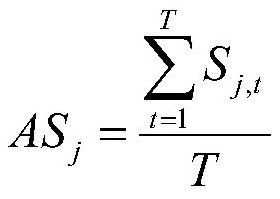Rail transit feed current measurement method based on shunt coefficient
A technology of shunt coefficient and feeding current, applied in the direction of measuring electricity, measuring device, only measuring current, etc., can solve the problem of not reducing the measurement points and so on.
- Summary
- Abstract
- Description
- Claims
- Application Information
AI Technical Summary
Problems solved by technology
Method used
Image
Examples
Embodiment Construction
[0025] The technical solutions in the present invention will be clearly and completely described below in conjunction with the accompanying drawings in the present invention.
[0026] see figure 1 , is a schematic flow chart of one embodiment of a rail transit feeding current measurement method based on a shunt coefficient in the present invention, and the method includes the following steps:
[0027] A. To obtain the current of the feeder cable, measure the current of the rail transit feeder cable within a certain period through a clamp ammeter;
[0028] B. Based on the feeder cable current obtained in step A, calculate the shunt coefficient of each feeder cable in the measurement period, specifically:
[0029] Assuming that the measurement period is T, the number of cables in the rail transit feeder loop is n, and the feed current of the jth feeder cable at time t is I j,t , where 1≤j≤n, 1≤t≤T, then the shunt coefficient of the jth feeder cable at time t is:
[0030]
...
PUM
 Login to View More
Login to View More Abstract
Description
Claims
Application Information
 Login to View More
Login to View More - R&D
- Intellectual Property
- Life Sciences
- Materials
- Tech Scout
- Unparalleled Data Quality
- Higher Quality Content
- 60% Fewer Hallucinations
Browse by: Latest US Patents, China's latest patents, Technical Efficacy Thesaurus, Application Domain, Technology Topic, Popular Technical Reports.
© 2025 PatSnap. All rights reserved.Legal|Privacy policy|Modern Slavery Act Transparency Statement|Sitemap|About US| Contact US: help@patsnap.com



